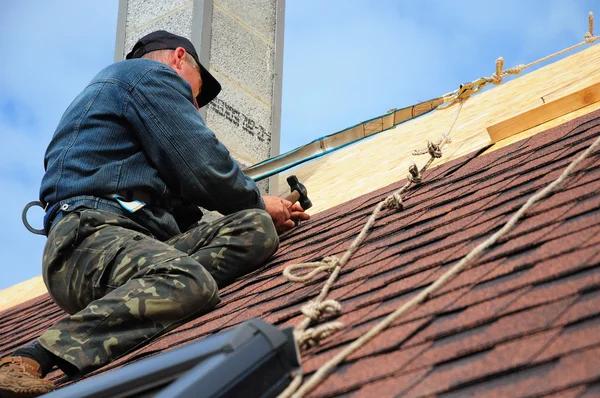Weather conditions play a crucial role in the success of any roofing replacement project. The condition of your roof can be greatly affected by the weather during the installation process, and it is important to consider this factor when planning for a new roof.
One of the main ways that weather conditions can affect your roofing replacement is through moisture. Rain, snow, or even high humidity levels can make it difficult for roofing materials to properly adhere to your roof. This can lead to leaks, water damage, and other issues that could compromise the integrity of your new roof.
In addition to moisture, extreme temperatures can also impact the installation process. If it is too hot or too cold outside, it may be challenging for contractors to work efficiently and effectively. For example, shingles may become brittle and break easily in cold weather, while excessive heat can cause them to warp and lose their shape.
Wind is another factor that should be taken into account when planning for a roofing replacement project. Strong gusts of wind can not only make it dangerous for workers on the roof but also cause damage to newly installed materials. Shingles may lift up or blow away entirely if Mircon they are not properly secured during windy conditions.
It is essential to choose a reputable contractor who has experience working in various weather conditions. A professional roofer will know how to adjust their techniques and materials based on the current weather forecast to ensure that your new roof is installed correctly and will last for years to come.
To minimize the impact of adverse weather conditions on your roofing replacement project, it is essential to plan ahead and schedule installation during more favorable times of year. Spring and fall are typically considered ideal seasons for roofing projects since they offer mild temperatures and lower chances of precipitation.
If you must replace your roof during less than ideal weather conditions, there are still steps you can take to protect your investment. Make sure that all materials are stored properly before installation begins so that they do not get damaged by rain or snow. Additionally, communicate with your contractor about any concerns you have regarding potential weather-related delays so that they can make appropriate accommodations.
In conclusion, understanding how weather conditions can affect your roofing replacement project is crucial for ensuring its success. By taking these factors into consideration and working with a knowledgeable contractor, you can help protect your home from potential damage caused by inclement weather during the installation process.
Mircon
68 County Rd 136B, Hernandez, New Mexico, 87537
(505) 636-3331











